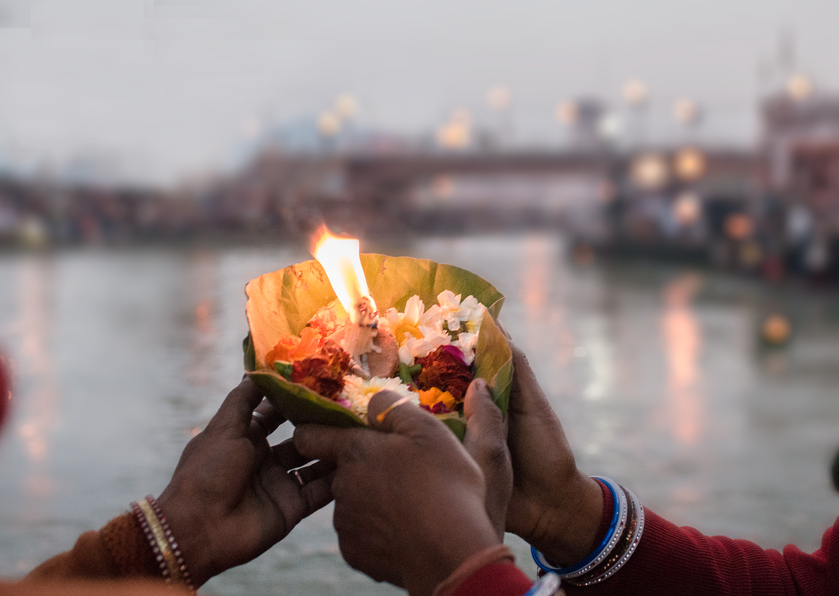12 Jan Resurrecting Ritual

Over the past couple years, our family has been rediscovering ritual. For many Westerners, the word ritual has religious connotations. We see religious ritual most prominently in the form of liturgy, the ceremonial services that are a major facet of Christianity (especially Catholicism and orthodox forms), Judaism, Islam, and most other world religions. Liturgies often include special clothing, food, accoutrements, and blessings that have been observed in a relatively unchanging way for centuries. This consistency promotes a sense of order and reverence which can feel spiritually potent to some and stale to others. Although there are so many non-religious forms of ritual, it can seem a clunky and unnecessary add-on to modern humans who are driven toward speed, convenience, and self-sufficiency.
Not everyone has an interest in the rituals of organized religion and even for those who do, there’s a specialness in forging rituals of your own that feel good and meaningful to you. I invite you to try it this week. First, let’s look at what ritual means.
The word ritual comes from the Latin ritus (rite), meaning a custom or performance, and this is thought to be derived from the earlier Sanskrit word rta (or rita). Rta, a term that first appeared in the Rig Veda, one of the oldest living texts on the planet (scribed roughly 1000 BCE), is variously translated as “natural order,” “cosmic order,” “truth,” “universal law,” and “harmony between all things.” Quite in alignment with this idea, some scholars suggest that rta is the origin of the English word rhythm.
Thus, we could think of our rituals as practices that establish and tune us in to the natural order and rhythm of our life. There are all sorts of ways to do a ritual, from solemn to light, and from simple to complex. Therefore, I’ll offer just a few loose guidelines.
- A ritual can be an activity in itself or it can be based around some task or event. For instance, you could create a daily ritual for the specific purpose of setting a positive tone for each day. You could also create a ritual around eating or washing, to make it a more deliberate and special event.
- Seriousness is not necessary, but respect for the value and significance of what you aim to do makes a real difference in its impact.
- At the least, I recommend that your ritual has an opening and a closing. The opening could be as simple as acknowledging what the intention of the ritual is. You could state, “I’m grateful for this meal and I intend to be deeply nourished by it.” The closing could be as simple as restating the purpose, or expressing gratitude for what was done. You might just say, “That was really good, and I am thankful.” Of course, you could get a lot more elaborate, too.
- Besides the opening and closing, the main thing that makes a ritual stand out from the mundane is that it’s different from the surrounding stuff. The ritual may involve different elements than those of your everyday life, and moreover, your presence is different. Consider incorporating one or more things to make the ritual unique, like lighting a candle, putting on a special piece of clothing, taking off your shoes, placing your hands on the earth, looking at a meaningful picture, eating or drinking something special, or whatever feels good to you.
- Finally, here’s what I see as the quintessential reason and method for ritual. Have you ever been hit over the head with a realization so simple that you felt both delighted and sheepish for not noticing it before? I had such an experience around ritual. It occurred to me that conscious ritual is, at its most fundamental, an act of creating specialness in your life. Or, we might call it sweetness. And the simple yet profound law that follows is this: The more sweetness you cultivate in your life, the more sweet your life will be. Perhaps you read that and thought, “Wow, this guy’s a real Einstein.” I know, it’s almost too simple to take it seriously. But, humans tend to think we need to be really lucky or highly skilled at working life the right way in order to get one that’s full of sweetness. And it’s not true. That sweetness is here; we’re usually just too busy or too wrapped up in our own thoughts to notice it. Start making space for rituals and the sweetness will show up.
Be well,
Dr. Peter Borten




No Comments